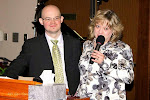And Jacob went on his way, and the angels of God met him.
And when Jacob saw them, he said, This is God's host:
and he called the name of that place Mahanaim
And Jacob sent messengers before him to Esau his brother unto the land of Seir, the country of Edom.
And he commanded them, saying...
Genesis 32:1-4
In Genesis 32:1 the word translated angels in Hebrew is Mal'ah'kei (Strong's #4397). It certainly means angels, but can also be translated messengers. In context, we see they are messengers of God and that he saw them as God's host, or more correctly translated: God's camp. Which is why he called the name of the place Mah'cha'na'eem - meaning "Camps".
But in the very next verse we read, "And Jacob sent messengers..." Can you guess what that Hebrew word is? If you guessed, Mal'ah'keem (plural for Mal'ah'kei in Hebrew), you are correct. So why then would the translators translate this differently? Over the years, the Jewish sages have argued if this was heavenly messengers or human messengers.
If we follow the context, I would be inclined to believe it to be heavenly messengers. Only a short time later, in the same chapter, we find Jacob wrestling with a supernatural being. At that time, God changed his name from Jacob to Israel, meaning a Prince of God.
We often hear sermons and discourses on how Jacob was a deceiver, thief, liar, etc. but throughout his life, we see that he had power with God and mean. Jacob lived in two realms. Sure, he deceived his brother from his birthright, and he deceived Laban out of his sheep and goats, and he also deceived his father. But we see God turning him around. In the midst of all this, we see him looking into the supernatural realm on many occasions. The night he fled from Esau, he saw the angels of God in a dream (Genesis 28:12).
Then we come to our current story. He has now fled from Laban. Both times, he encounters God and receives a message. God promises to be with him and return him to the land of his nativity. And both times, he sees the angels of God.
But this time, it appears from the Hebrew text that he dispatches and commands the angels. He sends the angels of God with a message to Esau.
How interesting that even after seeing the heavenly hosts and sending them with a message, that when they return with a report, Jacob is greatly afraid (32:7). It is following this event that he encounters the Angel of God's face (or Presence in Hebrew).
We also find Elisha seeing the angels and heavenly hosts when Elijah was taken up and later, when he blinds the Syrian army: And Elisha prayed, and said, LORD, I pray Thee, open his eyes, that
he may see. And the LORD opened the eyes of the young man; and he saw:
and behold, the mountain was full of horses and chariots of fire round
about Elisha. 2 Kings 6:17 It would appear that Elisha's eyes were always open to these divine messengers. Even at his death, when Joash the king comes to his deathbed, the king cries out, "O my father, my father, the chariot of Israel and the horsemen thereof." (2 Kings 13:14). It's as if the Lord opened the kings eyes to see the camp round about Elisha.
David exclaimed, The angel of the LORD encamps round about them that fear Him, and delivers them. Psalm 34:7 and in another place, he declared, The chariots of God are twenty thousand, even thousands of angels; the Lord is among them, as in Sinai, in the holy place. Psalm 68:17
I'm not advocating that we are to command the angels of God. We are certainly commanded not to worship them, but I do find these passages interesting to note and be reminded that they are ever present. There are many, many passages in the Bible where God sends them to minister to his people. The New Testament gives many accounts of the divine messengers of God intervening and providing support.

